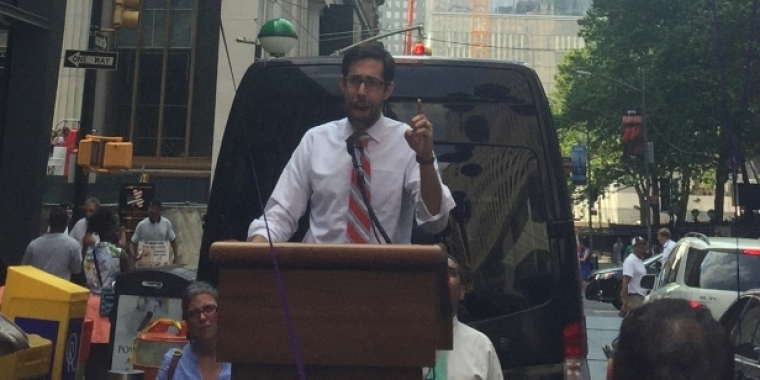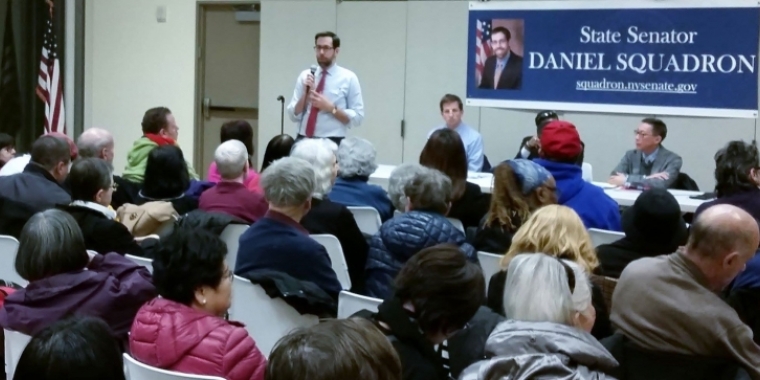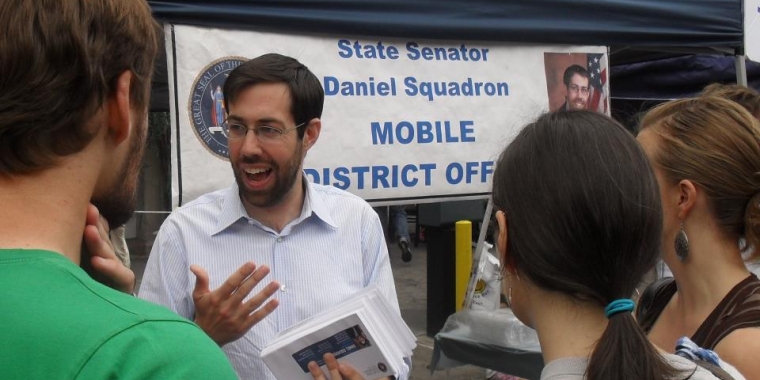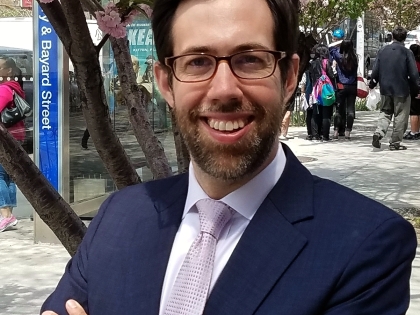
Squadron Testimony To New York City Council Committee on Courts and Legal Services On Speedy Trial in New York City Criminal Courts
February 29, 2016
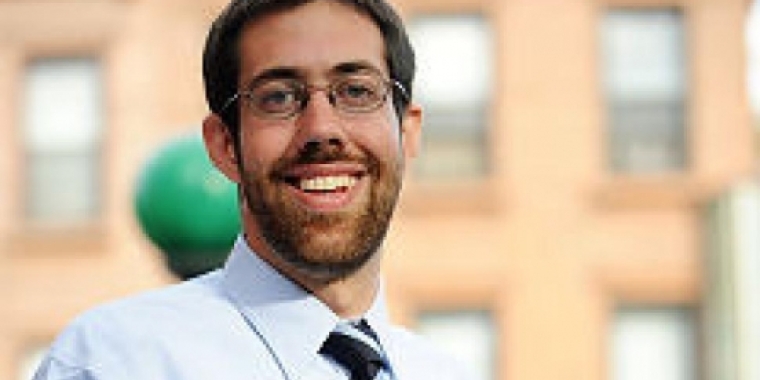
My name is Daniel Squadron, and I represent the New York State Senate 26th District. My district includes the Brooklyn neighborhoods of Brooklyn Heights, Carroll Gardens, Cobble Hill, the Columbia Waterfront, DUMBO, Downtown Brooklyn, Fulton Ferry, Greenpoint, the Navy Yard, Vinegar Hill, and Williamsburg, and the Manhattan neighborhoods of Battery Park City, Chinatown, the East and South Village, the Financial District, Little Italy, the Lower East Side, SoHo, and Tribeca.
As the ranking member of the State Senate Codes Committee, and the sponsor of Kalief’s Law (S.5988/A.8296 - Aubry), I would like to thank Councilmember Lancman for following-up on my request to hold a hearing on speedy trial reform, as well as the opportunity to submit testimony today.
I am sure we are all familiar with the tragic case of Kalief Browder, a 16-year-old arrested for stealing a backpack who spent over three years in pre-trial detention at Rikers. In those three years, Kalief had over thirty court appearances. He continued to maintain his innocence as days turned into months, which turned into years. Eventually, the charges were dropped and Kalief was released. He committed suicide last year.
Chair Lancman has correctly cited New York’s broken speedy trial statute as being unique to New York and allowing "parties to game the system.” Currently, prosecutors are able to stop the speedy trial clock in different ways. For example, prosecutors can declare themselves “ready” for trial to stop the clock. When the scheduled hearing date rolls around, prosecutors can declare that they are no longer ready, asking for a small number of days before "readiness." While this may have a legitimate basis, like witness availability, it may be based on the understanding that court congestion guarantees the next available trial date will be weeks or months off. But only the delays requested are counted against the clock.
Kalief’s Law would stop parties from "gaming the system" by requiring prosecutors to show evidence that they are in fact “ready” for trial. Among other reforms, it would tie trial “readiness” to discovery requirements and allow the court to reduce undue delay by requiring court approval for exclusions related to a change in “readiness.” This would push the system to protect the guaranteed speedy trials rights of the accused, while permitting the court flexibility when the facts warrant additional time.
I urge Chair Lancman and the committee to consider the broader impact of the state's speedy trial statute, including on court resources. Multiple adjournments, which the current statute allows without consequence, further clog the strained system. Concerns around our justice system’s judicial and personnel resources are valid. However, addressing that symptom requires also addressing the causes, including the current ability to claim “readiness” without certifying that the claim is real (as described above).
The Chair also points out that the “strain and hassle” of multiple unproductive courtroom appearances causes defendants to “trade the pursuit of justice for the relief of closure.” As the Chair acknowledges, this is partly because misdemeanor cases in NYC take much longer than the state’s statute intends, which also connects to astronomical plea deal rates. Kalief’s Law would change this. By clarifying that time attributable to court congestion should be counted against the speedy trial clock, it would ensure that defendants are not “paying” for court congestion as they do today.
The impacts of this broken law are felt far beyond the accused. In the New York Times’ recent account of stabbing-victim Alfredo Allen, the troubling impact on victims was also brought to light. The Allen family waited nearly four years for the disposition of Alfredo’s attackers’ case. With medical bills piling up, the Allens had critical interest in that trial’s conclusion. Beyond justice, they needed the trial to conclude to take civil action to cover Alfredo’s substantial medical costs. Unlike the lengthy delays in the criminal system, civil settlement took less than two months from the conclusion of the criminal trial.
This hearing addresses important issues like inadequate and inequitable justice resources and distribution, and needed administrative changes. I would like to thank Chair Lancman for joining the critical task of statutory reform. Fixing other issues would certainly be positive, but unless we also fix our state's broken speedy trial laws, we have only applied a band aid. The intense level of focus means we have the opportunity for comprehensive reforms, many of which I support. But we must go beyond administrative fixes, to the core statutory causes. Kalief’s Law is critical to fixing our speedy trial crisis.
A functional speedy trial law is not just a constitutional mandate, but clearly also a moral one.
Thank you again for the opportunity to provide testimony today.
related legislation
Share this Article or Press Release
Newsroom
Go to NewsroomState Senate Thanksgiving Creative Celebration Submissions
November 24, 2015

